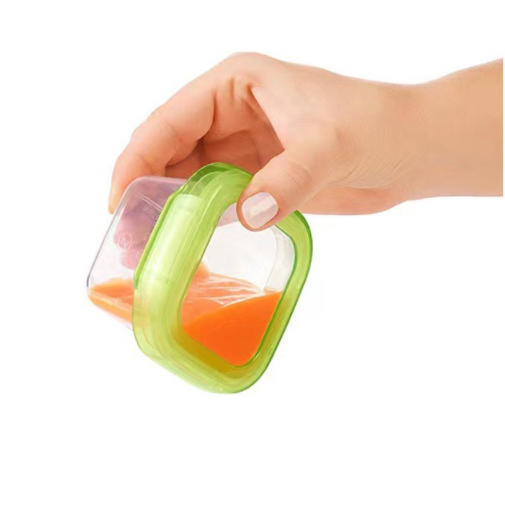If you are doing some cupboard organizing on these winter days, you may have shelves overflowing with plastic containers to store leftovers.
But now we are learning more about the health consequences of food and plastics. Maybe it’s time to ditch the plastic. Fruit Vegetable Produce Storage Saver Containers

Harvard Health Studies, as well as other researchers around the world, have found that certain chemicals in plastic leach out of the plastic and into the food and beverages we eat.
Some of these chemicals disrupt our endocrine systems and have been linked to such health problems as metabolic disorders (including obesity) and reduced sperm count.
This leaching can occur to a greater degree when plastic is exposed to heat.
This means you might be getting an even higher dose of potentially harmful chemicals simply by microwaving your leftovers in a plastic container.
These health concerns over plastic were examined in a U.S. Senate Environment and Public Works subcommittee hearing on December 15.
Sen. Jeff Merkley began the hearing, stating, “What we know is that plastics are loaded with thousands of chemicals with different effects, and that those chemicals are not even disclosed to the public.”
Pete Myers, chief scientist of Environmental Health Sciences and professor of chemistry at Carnegie Mellon University, has studied endocrine disruption for decades.
He told the committee that hundreds of studies show that plastic additives are linked to breast cancer, testicular cancer, immune disorders, ADHD, and autism. He emphasized that testing for toxins in plastics has not been done for many kinds of plastics.
Judith Enck, president of Beyond Plastics, gave testimony that “the process of introducing a new type of plastic to the consumer goods marketplace is completely different from the process pharmaceutical companies go through when they introduce a new blood pressure medication or measles vaccine, which require a lengthy process to prove a drug’s safety.”
Given all of these unknowns, along with the terrible environmental impact of our addiction to plastic, here are some ideas for the best plastic-free food storage: Glass jars (either bought or used), good-quality glass containers, silicone containers, stainless-steel containers, beeswax wraps and bags.
Avoid heat, including the microwave and dishwasher, especially when it comes to takeout containers and other forms of single-use plastic. Styrofoam (polystyrene) can leach styrene, a neurotoxin and possible carcinogen.
Plastic integrity doesn’t last forever —avoid scratched and discolored plastic and pay attention to “expiration dates” on products such as SodaStream bottles.
Don’t store fatty or oily foods in plastic — many chemicals used in plastic are fat-soluble and are more likely to leach into fatty food.
Cut down on plastic water bottles, which contribute to the widespread ingestion of micro-plastics.

Stackable Produce Saver Send questions to ipswichrecycles@gmail.com, or visit theFacebook page at Ipswich Recycles and Composts.